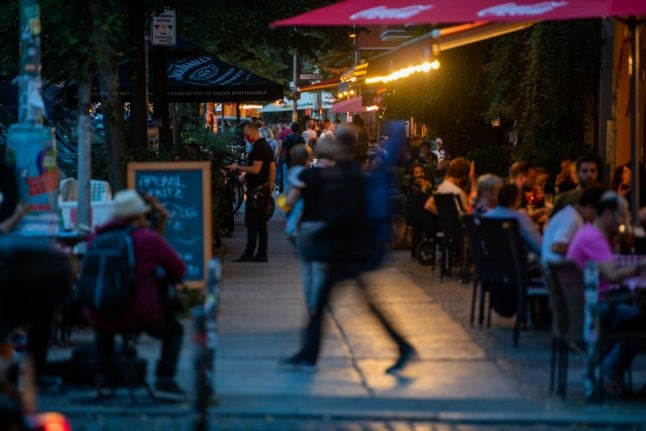In Berlin, the restrictions on meeting others will be tighter at night, between 11pm and 6am, when they are limited to five people from different households, or people from two households.
During the day, groups of up to 50 will still be permitted, although indoors the cap is 10. Previously the limit for indoor gatherings was 25.
An 11pm curfew on bars, restaurants and shops was also introduced after the capital saw the virus's reproduction rate hit 1.26, meaning each infected person is passing it to more than one other person.
According to the Berlin Senate's decision, exceptions are planned for petrol stations, but these are no longer allowed to sell alcohol at night. Pharmacies are also exempt.
The measures are mainly aimed at clamping down on private and illegal parties, which the Berlin authorities see as driving the infection rates up. They are to apply from Saturday – and are initially in place until October 31st.
Berlin tightened measures in the city just last week. They included compulsory masks in offices. However, figures have continued to worry authorities. There have been around 1,500 confirmed Covid-19 cases in the last seven days in the capital.
And the number of new infections per 100,000 inhabitants in the last seven days has reached a value of 44.2. In the inner city districts the numbers are significantly higher than on the outskirts, with the popular district of Neukölln in particular standing out with 87.3.
READ ALSO: 'Stricter than other German cities': These are Berlin's new coronavirus measures
“The 7-day incidence in Berlin and Bremen is considerably higher, in Hamburg, North Rhine-Westphalia and Hesse moderately higher than the national mean 7-day incidence,” said the Robert Koch Institute in its latest situation report.
Meanwhile, Frankfurt announced a 10pm curfew for restaurants, banned alcohol consumption in public places and made masks obligatory in busy shopping areas.
READ ALSO: 'More masks, less parties': Germany limits events and family gatherings to curb coronavirus
Other parts of Europe are also increasing measures.
From Friday, Belgians will be restricted to unmasked contact with just three people in their personal “bubble”, down from five, and an 11pm curfew on bars and cafes in Brussels will be extended to the rest of the country.
Belgium has recorded more than 30,000 new cases since September 20, and 500 hospitalisations in the first week of October.



 Please whitelist us to continue reading.
Please whitelist us to continue reading.
Member comments